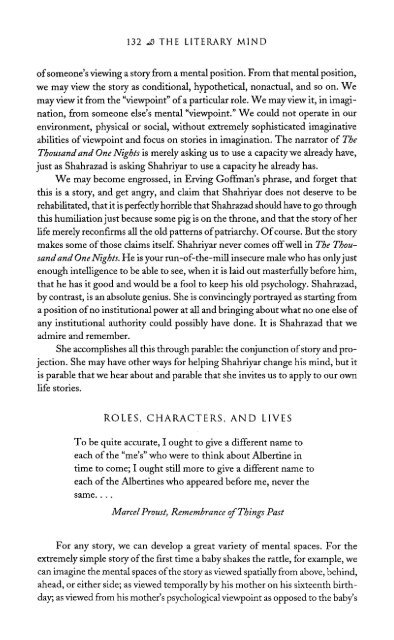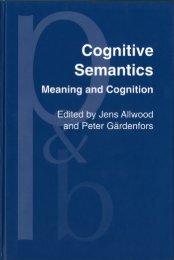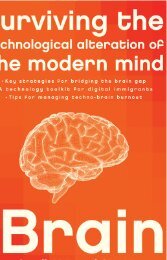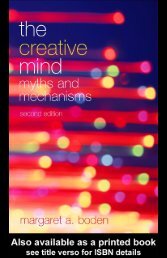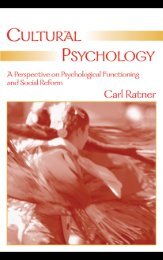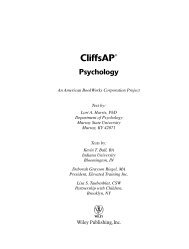The Literary Mind.pdf
The Literary Mind.pdf
The Literary Mind.pdf
Create successful ePaper yourself
Turn your PDF publications into a flip-book with our unique Google optimized e-Paper software.
132 THE LITERARY MIND<br />
of someone's viewing a story from a mental position. From that mental position,<br />
we may view the story as conditional, hypothetical, nonactual, and so on. We<br />
may view it from the "viewpoint" of a particular role. We may view it, in imagination,<br />
from someone else's mental "viewpoint." We could not operate in our<br />
environment, physical or social, without extremely sophisticated imaginative<br />
abilities of viewpoint and focus on stories in imagination. <strong>The</strong> narrator of <strong>The</strong><br />
Thousand and One Nights is merely asking us to use a capacity we already have,<br />
just as Shahrazad is asking Shahriyar to use a capacity he already has.<br />
We may become engrossed, in Erving Goffman's phrase, and forget that<br />
this is a story, and get angry, and claim that Shahriyar does not deserve to be<br />
rehabilitated, that it is perfectly horrible that Shahrazad should have to go through<br />
this humiliation just because some pig is on the throne, and that the story of her<br />
life merely reconfirms all the old patterns of patriarchy. Of course. But the story<br />
makes some of those claims itself. Shahriyar never comes off well in <strong>The</strong> Thousand<br />
and One Nights. He is your run-of-the-mill insecure male who has only just<br />
enough intelligence to be able to see, when it is laid out masterfully before him,<br />
that he has it good and would be a fool to keep his old psychology. Shahrazad,<br />
by contrast, is an absolute genius. She is convincingly portrayed as starting from<br />
a position of no institutional power at all and bringing about what no one else of<br />
any institutional authority could possibly have done. It is Shahrazad that we<br />
admire and remember.<br />
She accomplishes all this through parable: the conjunction of story and projection.<br />
She may have other ways for helping Shahriyar change his mind, but it<br />
is parable that we hear about and parable that she invites us to apply to our own<br />
life stories.<br />
ROLES, CHARACTERS, AND LIVES<br />
To be quite accurate, I ought to give a different name to<br />
each of the "me's" who were to think about Albertine in<br />
time to come; I ought still more to give a different name to<br />
each of the Albertines who appeared before me, never the<br />
same. . . .<br />
Marcel Proust, Remembrance of Things Past<br />
For any story, we can develop a great variety of mental spaces. For the<br />
extremely simple story of the first time a baby shakes the rattle, for example, we<br />
can imagine the mental spaces of the story as viewed spatially from above, behind,<br />
ahead, or either side; as viewed temporally by his mother on his sixteenth birthday,<br />
as viewed from his mother's psychological viewpoint as opposed to the baby's


